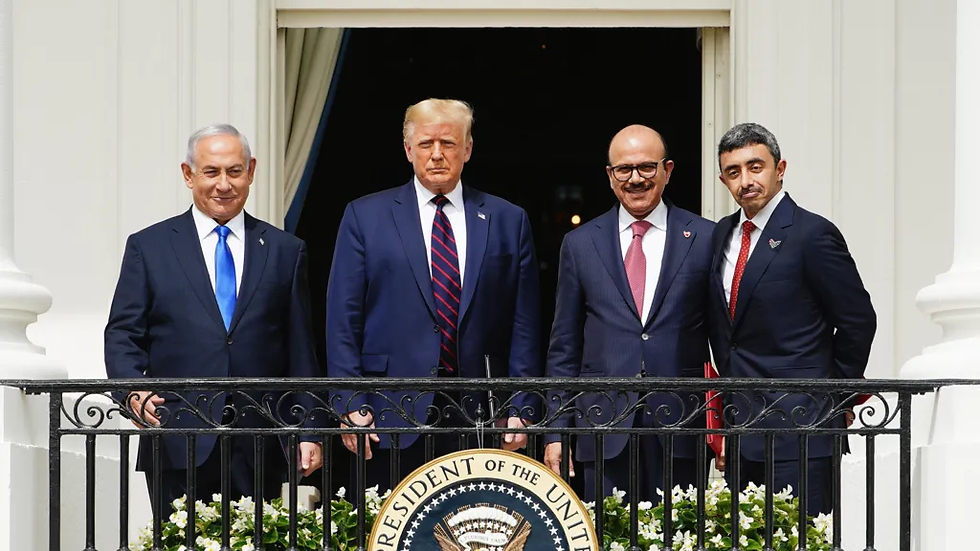Biological Men Eliminated from Women's Sports as Trump Signs an Executive Order
- Douglas Kimathi

- Feb 5
- 3 min read
Douglas Kimathi, Jadetimes News
D. Kimathi is a Jadetimes news reporter covering USA & Innovation

In a move that has garnered significant attention, President Donald Trump is signing an executive order that would prohibit transgender women from competing in women’s sports. The order seeks to reinforce the policy of maintaining a binary understanding of sex in federal laws. This executive order could dramatically change the landscape of sports, especially in schools and colleges where transgender women have been allowed to participate in women’s athletic events.
Details of the Executive Order
The order would enforce a policy that recognizes only biological sex as the determinant factor for participation in sports. Under this order, individuals who are biologically male would not be permitted to compete in women’s sports, regardless of their gender identity. The order is expected to apply to all federally funded institutions, including schools and colleges, which would face significant consequences if they continue to allow transgender athletes in women’s teams. This policy is set to affect not only high school and collegiate athletics but also potentially disrupt Title IX protections for transgender students.
Political and Legal Reactions
The executive order has already sparked a whirlwind of political and legal responses. Proponents of the policy argue that it’s a matter of fairness in competitive sports, claiming that biological men have physical advantages that give them an unfair edge in women’s competitions. Critics, however, argue that such a move would be discriminatory, undermining the rights of transgender athletes and contributing to the growing marginalization of transgender individuals in the U.S.
Legal experts and advocacy groups, including the Human Rights Campaign and Lambda Legal, have indicated they will challenge the executive order in court if it’s signed into law. They claim that it violates constitutional rights, particularly the Equal Protection Clause, which guarantees equal treatment under the law. Additionally, critics point out that such an order could foster an environment of hostility and exclusion for transgender youth in educational settings.
Public and Educational Institutions' Role
Educational institutions that receive federal funding are particularly impacted by this executive order. The executive order would require schools to enforce gender-based sports divisions, leading to widespread changes in how teams are structured. This could include forcing transgender athletes to compete in teams that align with their biological sex. This could potentially push them to face significant challenges related to their gender identity and social inclusion.
Many educators and administrators have already voiced concerns about how such a policy would affect transgender students. Educational leaders are worried about the emotional and psychological toll on young athletes who would suddenly find themselves excluded from sports they have trained for. Schools and universities will also face the logistical burden of ensuring compliance with the new rules, potentially leading to conflicts with state and local regulations.
Broader Impact on Transgender Rights
While the order would primarily focus on sports, it’s part of a broader cultural and political agenda to address the growing influence of transgender rights in American society. The Trump administration, through this executive order, is taking a strong stance on what it deems as “protecting women’s sports,” but critics argue that it ignores the reality that transgender individuals should have the right to live and compete in accordance with their gender identity.
The issue of transgender participation in sports has become a lightning rod for political debate in recent years, particularly in the wake of growing visibility and advocacy for transgender rights. This executive order would undoubtedly add fuel to the fire, further polarizing an already contentious issue.
Reactions from Advocacy Groups
Transgender advocacy groups have been quick to respond, condemning the potential order and calling for an end to policies that specifically target transgender people. They argue that transgender women are often the most marginalized members of society, and singling them out in this manner would only increase their vulnerability.
Next Steps and Legal Challenges
The American Civil Liberties Union (ACLU) and other civil rights organizations are preparing to fight it in court. If the executive order is implemented, the long-term impact could reshape the landscape of transgender rights in the U.S., particularly in schools and sports.
In the coming weeks, it will be crucial to watch how lawmakers, legal professionals, and advocacy groups respond to what would undoubtedly be a contentious policy shift. As the nation continues to grapple with questions of gender identity and rights, the battle over transgender inclusion in sports remains a central issue.










































Comments